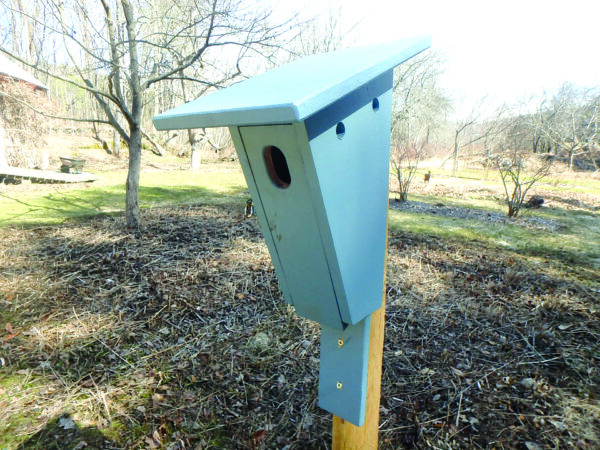News from the local food scene
• Greek meals to go: Join Holy Trinity Greek Orthodox Church (68 N. State St., Concord) for its next boxed Greek dinner to go event on Sunday, April 25, from noon to 1 p.m. Now through April 21, orders are being accepted for boxed meals, featuring baked haddock, rice pilaf, a vegetable and a dinner roll, for $20 per person. The event is drive-thru and takeout only — visit holytrinitynh.org, email [email protected] or call 953-3051 to place your order. Assumption Greek Orthodox Church (111 Island Pond, Manchester) is also hosting its next drive-thru food fest on Saturday, April 25, from noon to 2:30 p.m., with orders being accepted now through April 21. That menu will feature baked haddock dinners with rice pilaf, Greek-style peas and carrot medley, plus other available a la carte items like spinach petas and pastry platters featuring baklava and assorted cookies. This event is also pickup only (stay in your car; no walk-ins). Visit foodfest.assumptionnh.org.
• Tastee Kone reopens this week: Soft-serve ice cream shop Tastee Kone (272 Route 101, Amherst) will reopen for the season on Friday, April 16, owner Jill Jones confirmed. In addition to 30 different flavors of soft-serve, including chocolate, vanilla and chocolate and vanilla twist, Tastee Kone also serves hot dogs and all types of sundaes and razzles, or soft-serve flavors mixed with a variety of candied ingredients. One of the most popular offerings, Jones said, is the almond milk swirl, a vegan alternative with different flavors changing every three days. Tastee Kone is open Monday through Saturday from 11:30 a.m. to 8 p.m., and Sunday from 2 to 8 p.m. Find them on Facebook or call 203-3270.
• Anniversary brews: Derry’s Daydreaming Brewing Co. (1½ E. Broadway) is celebrating its first full year in business with the release of its Anniversary Ale on Friday, April 16, at 4 p.m., featuring a blend of its Russian imperial stout, barleywine and Belgian strong dark ale that has been aged in a whiskey barrel. Owner and founder Andy Day will also be presenting a new beer series this week based on a Dungeons & Dragons campaign — Fierce Princess, a German Pilsner brewed with rye and spicy peppers, will roll out on Thursday, April 15, at 4 p.m., followed by three more releases in the series expected to be ready every four months. Visit daydreaming.beer. In Manchester, Candia Road Brewing Co. (840 Candia Road) is releasing a crushable session IPA called Lil’ Conez on Saturday, April 17, at noon, a collaborative brew with Bill and Alli Seney of the Manchvegas Brew Bus in celebration of the bus’s third anniversary. Visit candiaroadbrewingco.com.
• Gibson’s selling Bread & Chocolate gift certificates: Gibson’s Bookstore in Concord is helping to sell gift certificates redeemable at its Main Street neighbor Bread & Chocolate, which is expected to remain closed through at least the end of this month following an unexpected family medical emergency. You can visit gibsonsbookstore.com/bread-chocolate-gift-certificate to purchase a gift certificate in multiple amounts from $5 to $200 per recipient. Certificates will be mailed to you, with all of the money collected going toward Bread & Chocolate. The downtown bakery, which has long been a spot known for its cakes, tarts, Danishes, cookies and other pastries, has been closed since late March. Follow Bread & Chocolate on Facebook @breadandchocolateconcordnh for updates on their reopening plans.







